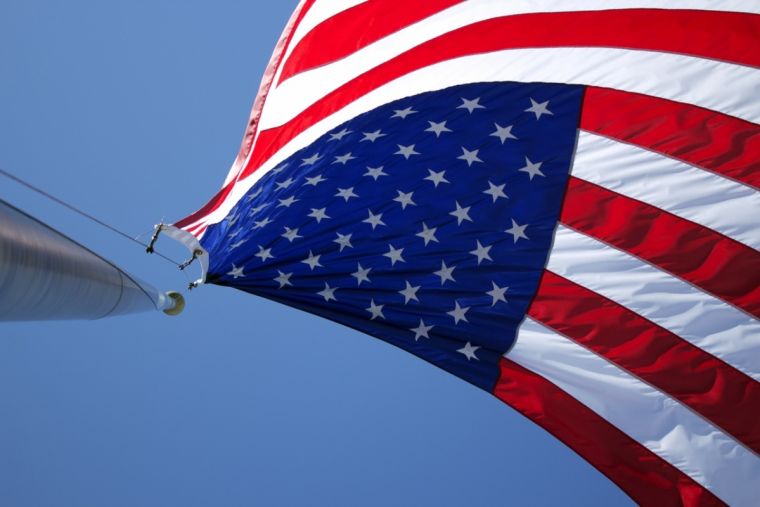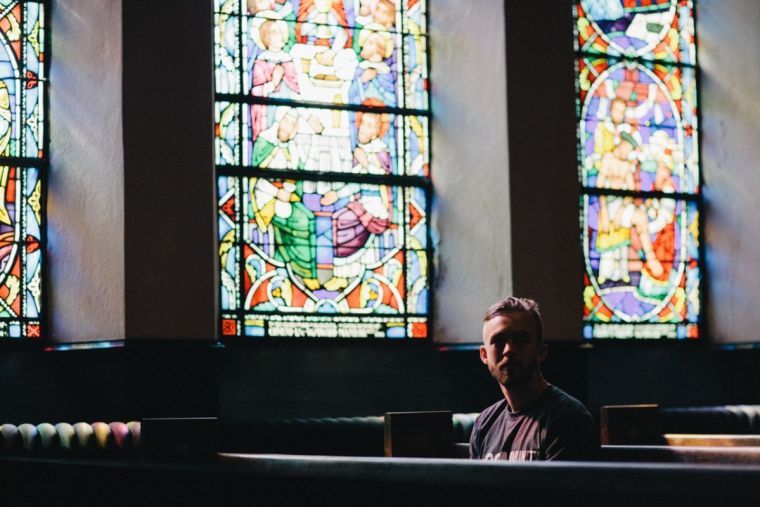White Christians in America are a declining and ageing minority, new survey finds

White Christians in the US are in the minority and declining, amid increasing ethnic diversity and growing numbers of people who identify as religiously unaffiliated, according to a new survey.
The poll from the Public Religion Research Institute (PRRI) found that just 43 per cent of Americans now identify as white and Christian. This is in contrast to 81 per cent of Americans identifying as white Christians in 1976.
Past surveys have detailed a decline among Catholics in the US.
But what is most striking about the new PRRI survey is that it shows a relatively recent decline among evangelicals – from 23 per cent to 17 per cent from 2006 to 2016.
'This report provides solid evidence of a new, second wave of white Christian decline that is occurring among white evangelical Protestants just over the last decade in the US,' said Robert P Jones, the PRRI's CEO and author of The End of White Christian America.
'Prior to 2008, white evangelical Protestants seemed to be exempt from the waves of demographic change and disaffiliation that were eroding the membership bases of white mainline Protestants and white Catholics. We now see that these waves simply crested later for white evangelical Protestants.'
Today, fewer than half of all states are majority white Christian, the survey found. As recently as 2007, 39 states had majority white Christian populations.
As TIME magazine pointed out, the survey reinforces the findings of a separate one in 2015 by the Pew Research Center, which found that the number of white Christians in the US had fallen to 46 per cent.
Overall, a majority of Americans today are Christian, bolstered by a growing percentage of black and Hispanic believers.
At the same time, the new PRRI survey identified a specific decline in the percentage of Americans who identify as white Protestants — now at just 30 per cent.
And a further sign of the apparent, gradual decline of Christianity in the US comes with the fact that although non-Christian religions still account for less than 10 per cent of the American population, they are growing and are made up of higher percentages of young people, compared to the ageing group of white Christians.
The PRRI's director of research, Daniel Cox said: 'The young are much less likely to believe this is a "Christian nation" or to give preference to Christian identity. Young people and seniors are basically inhabiting different religious worlds.'
Almost a quarter (24 per cent) of Americans now identify as religiously unaffiliated, and around a third of those are under 30.
Meanwhile, around one in 10 white Catholics, evangelicals and mainline Protestants are under 30, compared with one-third of all Hindus and Buddhists.
Muslims and Mormons are the youngest faith groups in the US, with 42 per cent of all Muslims and nearly a quarter of all Mormons being under 30.

Cox links this to the rise of conservative evangelicals – who oppose same sex marriage, abortion access and the legalisation of marijuana – and their alienating effect on the young.
'It is no longer the case among young people that being religious is necessarily a positive attribute,' said Cox.
The survey also shows that white Christians are a minority in the Democratic Party: fewer than one in three Democrats are white Christians, down from almost half 10 years ago.
And among Democrats under 30, only 14 per cent now identify as white Christian, while 40 per cent are 'nones'.
In the Republicans meanwhile, white evangelicals remain predominant, with more than one-third (35 per cent) of GOP supporters being white evangelicals.
Elsewhere, the survey found that almost half (46 per cent) of LGBT Americans are religiously unaffiliated — which is around twice as many as the general population (24 per cent).
Rabbi Denise Eger, founding rabbi of the Kol Ami synagogue in West Hollywood and an LGBT activist, told the Catholic news website Crux that fundamentalism, especially in Christianity, Islam and, to a lesser extent, Judaism, was to blame for this.
'The truth is that all of religion becomes tainted, even though there are many denominations that welcome them, that it becomes "why bother?"'.
Speaking about the rise of the 'nones,' Jennifer W Davidson, an associate professor of theology and worship at the American Baptist Seminary of the West, said that the rise in the religiously unaffiliated means people must now ask old questions in new ways.
'We need to begin asking people, "How do you make meaning in your life? What sustains you when you suffer? How do you cultivate a sense of wonder?"' she said.
'It is fully possible to answer these questions from a secular perspective, and if we asked them, we might be able to see abundantly fruitful connections among people who are religiously affiliated, religiously unaffiliated, secular, agnostic and atheist.'
The study, 'America's Changing Religious Identity,' contacted 101,000 Americans in 50 states, and has an overall margin of error of plus or minus 0.4 percentage points.











